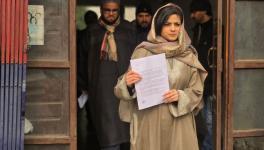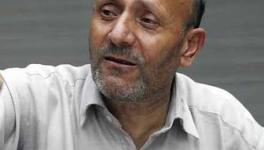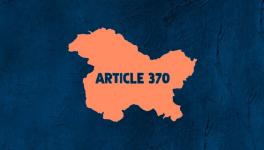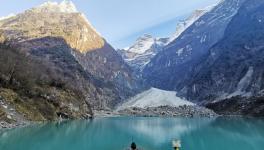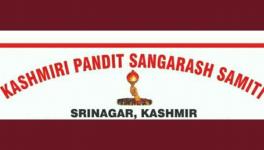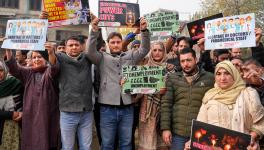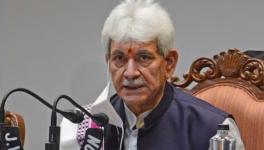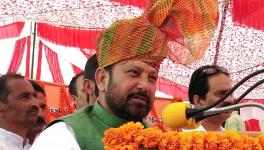Bhutan Elections: Druk Nyamrup Tshogpa Wins, Druk Phuensum Tshogpa as Opposition Again
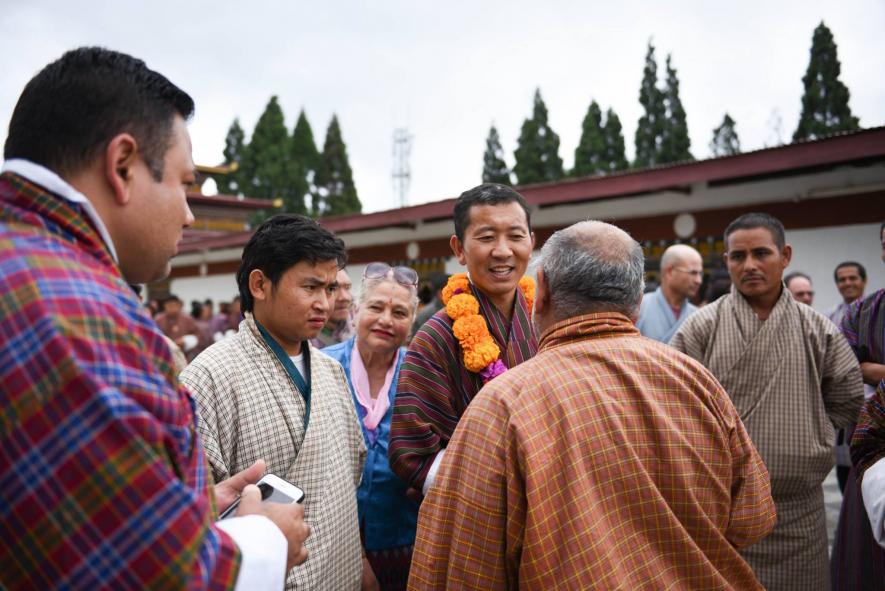
Bhutan, for the third time, has elected a new party to head their government. In the previous election, the voters had chosen the People’s Democratic Party (PDP) over the incumbent Druk Phuensum Tshogpa (DPT). However, the PDP was unable to qualify in the primary round. This time, the DPT will have to sit in the opposition again, as the Druk Nyamrup Tshogpa (DNT) gained the Bhutanese people’s mandate. However, the DNT’s election promises as well as their 25 pledges in 120 days may not be very successful considering the debt their predecessor has raked up.
The elections concluded with the DNT and the DPT winning 30 and 17 seats respectively in the 47 member National Assembly. Despite a difference of 13 seats, the DPT members will form the strongest opposition in the National Assembly since the first election in 2008. In the first election, the PDP gained only two seats, whereas in 2015, the DPT had 15. Of the 4,38,663 registered voters, 3,10,273 participated in the election, representing a turn-out of a little over 70 per cent. Of the total votes cast, a little over 63 per cent were through Electronic Voting Machines (EVMs), and the rest were by postal ballots.
Also Read | Bhutan to Vote Tomorrow for Third National Assembly
The bulk of the DNT’s seats were won in the Western constituencies whereas all the DPT seats have been firmly in the East. The explanation offered is that the DNT gained the confidence of those who had voted for the PDP and the Bhutan Kuen-Nyam Party (BKP) in the primary round. Perhaps, the votes gained may have been votes against the DPT. Predictably, the Southern voters mostly supported the DNT. On the one hand, DNT party president and now prime minister, Dr. Lotay Tshering’s speech in Nepali at Tendu may have helped his prospects, as a sizeable number of the Bhutanese in the South – referred to as Lhotshampas – are Nepali speakers. The other aspect that may have helped was that the party’s election manifesto laid a lot of emphasis on creating infrastructure in the south.
The DNT’s election manifesto was a mix of populist promises and a development agenda. At the end of their document, they promised to fulfil 25 pledges in 120 days.
Education
The DNT’s promises regarding education appear to be premised on reform in the way education is perceived, and the implementation of a mid-day meal scheme. The DNT has promised that they would initiate and implement discontinuation of exams until class VII, and will remove the cut-off marks for further education after class X. They have also promised to finalise a framework to reduce the workload on teachers, and to provide support for extra and co-curricular activities for students. This emphasis on curriculum reform also plays into the party’s perception of the changing job market. The party blames the rising youth unemployment on the skills imparted in formal schooling, and have also proposed creating vocational and apprenticeship programmes to supplement academic pursuits.
Welfare
The DNT has promised to establish a dedicated agency with a plan of action for providing water for drinking and irrigation for all by 2021. Like most mountainous regions in the Eastern Himalayas, Bhutan has adequate water resources, yet suffers from supply shortages. It is a situation where the problem lies in distribution rather than availability.
They have also promised to address the menace caused by the stray dogs, find a way to manage waste, and to develop a blueprint for building adequate residential complexes. One of the ways in which they plan to address the housing situation is to do away with the law which limits the height of buildings to two storeys. Though it is uncertain what the original intention of the law was, considering that the Himalayas are a seismically sensitive zone, the amount of damage caused by a two storey structure collapsing may be considerably less than that of a four or five storeyed structure.
The DNT has also promised to review the national youth policy and implement a national youth action plan to address the needs of the youth. This may also be linked to their plans on curriculum reform.
Culture
The previous PDP government of Bhutan had initiated the Samrang project – a mega farm in Samdrup Dzongkhar – to provide farmers with subsidised livestock for animal husbandry. However, the project faced criticism when older unproductive animals were sold, ostensibly for being slaughtered for meat. This led to rumours that the project was a slaughterhouse. The Agriculture Minister Yeshey Dorji vehemently denied these allegations in the National Council. However, the more conservative quarters lobbied against the project.
The opposition was based on the Buddhist character of Bhutan which is opposed to slaughtering animals, since the Constitution states that it is the national heritage of the country. Thus, the DNT has promised that the Samrang project will be converted into a vegetable farming project. The party has gone a step further, and promised to promote vegetarian meals at official functions as well.
The DNT has also promised to provide financial assistance through a budgetary allocation to all shrines so that they can conduct annual rituals and festivals. Thus, the shrines would not be compelled to rely on donations from the people, many of whom may be socially coerced to part with their low earnings. The DNT has also promised to review the 12th Five Year Plan to include a revolving fund for civil society organisations, and for film and documentary promotion.
Also Read | ‘Earth Champion’ Irony: High Praise, Low Performance
Communication
The DNT has promised to create an intranet for the entire country that would allow all persons connected to it to access the internet for free. They have also decided to do away with the five per cent tax on recharge vouchers. As well as to develop a messaging app – Suung Joen app – along the lines of We Chat and WhatsApp.
Perhaps the intranet infrastructure is aimed at serving as a filter for content – outgoing as well as incoming. On the other hand, the decision to create a messaging app may be linked to the various scandals concerning Facebook, such as the Cambridge Analytica fiasco. However, the infrastructure can as easily become a tool of control considering that all parties swear their allegiance to the monarch.
Governance
The DNT has promised to revise salaries and allowances of civil servants and Royal Bhutan Police (RBP) personnel. The DNT has further promised that they would ease the long duty hours of RBP personnel as well as provide them adequate compensation for additional duties. As part of the party’s administrative promises, the DNT stated that they would develop professional standards for public services, and create a mechanism for all services to be provided at the local level at a single location.
In a bid to promote alternative fuel – perhaps to reduce their dependence on fuel imports from India – the DNT has promised that all cabinet ministers will use electric or hybrid cars for domestic travel. Allegations still persist that India swung voters against the DPT in 2013 by cutting a fuel subsidy barely days before Bhutan went to the polls.
The party also promised that they would support decentralisation through opening offices for associations and groups in all constituencies. The DNT also promised to establish a tourism development board, and implement the recommendations from earlier studies.
Agriculture
The DNT has promised that they would set up crop insurance schemes as well as initiate the Sonam Gongphel project, wherein the government will act as the middleman and buy farmers’ produce. The DNT intends to do this without impeding small businesses at the block level.
Labour and employment
Bhutan has been witnessing a growing number of unemployed young people in the country. Previous strategies involved relaxing the emigration norms to allow people to seek jobs outside the country. However, several disturbing stories appeared concerning ponzi schemes and scams – one of which was run out of an apartment in Siliguri – designed to lure the job seekers, and take their money. To this effect, the DNT has promised to identify, and list the skills needed in the country, and to design a programme through which they can train the youth for employment. This also ties up with the promise to reform the curriculum in the country.
Interestingly, the DNT has decided to ease the immigration rules to enable more immigrants to enter the country as domestic workers. The DNT’s reasoning is that domestic workers allow women more free time, and reduce their workload. However, this could actually be a ploy to placate the Bhutanese middle class, since it is doubtful that the poor would be able to hire domestic workers.
The DNT has also promised to meet the representatives of taxi drivers’ associations to address the issues regarding parking space, professional driving license, ownership, age of the vehicle and age of the driver. Though not a part of the ‘120 days’ pledge, the DNT has declared that they would recognise the informal sector which engages around 75 per cent of Bhutan’s work force and ensure that their rights too are protected.
Policy and economy
The DNT has promised to establish a high level committee to draft a long-term policy document titled Bhutan: Vision 2045. They have also promised to set up a private sector development committee led by the finance minister in partnership with the Bhutan Chamber of Commerce and Industry. The committee would oversee the implementation of an earlier report’s recommendations.
Also Read | Foreign Policy or Domestic Policy: What Did Bhutan Vote for?
The elephant in the room, however, is still the mountain of external debt Bhutan has accumulated. All the promises – the DNT has pledged will be done in 120 days – will require funds. Thereafter, for implementing the policy recommendations among other things will add to the government’s expenses. An additional complication is that the Bhutanese currency – Ngultrum – is pegged to the Indian Rupee which is not doing very well at present. Finally, the country has a trade imbalance which will certainly not be sustainable if the Indian Rupee continues sliding downwards.
Get the latest reports & analysis with people's perspective on Protests, movements & deep analytical videos, discussions of the current affairs in your Telegram app. Subscribe to NewsClick's Telegram channel & get Real-Time updates on stories, as they get published on our website.









